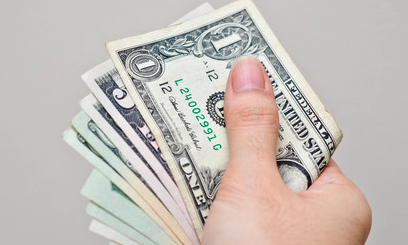Debt collection how it works. Things to know
To understand the recovery of credits as it works, it is first of all necessary to remember that the credits are not all the same.
There are financial credits for loans, mortgages and non-repayable loans. And then there are commercial credits that are generated from the supply of goods, provision of services or other utilities.
Financial receivables refer to banks, finance, leasing and factoring companies. Trade receivables refer to industrial, commercial and craft companies of various types and sizes.
The debtors can be, both in one case or another, public entities, private companies or simple individuals falling within the category of consumers.
Usually, in fact, the commercial credit is that of a company towards another (B2B) or of a company towards the Public Administration (B2P). However, commercial credits are also considered those of companies that supply supplies and services (so-called “utilities”) both to companies that, in fact, to consumers (B2C).
Both the one and the other the recovery of the credit can happen in extrajudicial way or through procedures of judicial debt recovery.
Extrajudicial and judicial debt collection
When we speak of extrajudicial (or extra-judicial) recovery we mean the recovery activity that takes place outside the traditional judicial ways. In practice it is a complex of activities that can be substantiated in written reminders, telephone calls and home visits by authorized officials. The purpose of this activity is to invite the debtor to a spontaneous payment .
Judicial debt collection, instead, occurs by contacting the Judicial Authority in order to obtain the payment of the debtor .
If, in spite of the payment order, the debtor does not fulfill, he can seize his assets to satisfy himself.
Better extrajudicial recovery or judicial recovery?
To say if it is better one or the other is impossible. It would be like wondering if they are better than the laced shoes or a pair of sneackers. Certainly I would not go running with the first, but I would hardly go to an elegant evening with the latter. It depends on the circumstances and objectives you want to achieve.
In some situations it is practically necessary to resort to legal action. To better understand what I’m talking about, you can read how judicial debt collection works .
Personally I tend to always prefer a friendly solution , and, therefore, to walk the judicial route only in the 4 cases indicated in the article that I have just reported.
Extrajudicial debt collection has undoubted advantages over judicial recovery . 1. First of all it allows to manage considerable flows of practices. 2. Secondly the processing is faster because it is done by written or telephone reminders. 3. Allows you to play on the surprise effect of the home visit by the debt collector. 4. Last, but not least, it allows you to significantly reduce costs compared to legal action.
However, it is not always possible to open negotiations with the debtor. On the contrary, in some cases it is not even possible to trace the debtor . It is clear, in fact, that a negotiation with the debtor can only take place when this has been traced (by telephone or in person) and is willing to consider the possibility of an agreement.
Who can carry out debt collection
To understand credit recovery as it works you also need to ask yourself who is authorized to do so.
Lawyers qualified to carry out the legal profession can certainly carry out extrajudicial and judicial debt collection activities. However, the professional qualification is complete only with the registration on the relevant Register based on the professional’s place of residence.
In practice, therefore, it is necessary, but not sufficient, to have the title of lawyer (which is achieved by passing the state exam). To be able to carry out debt collection activities, it will also be necessary to register in the Register of the relative Membership Order.
For example, the writer is registered in the Register of the Order of Lawyers of Florence
With regard to debt collection companies , on the other hand, authorization from the Police Headquarters of the place where the company is based is required. The administrative authorization is issued after verification of all the requirements of the Law. The sector legislation is governed by art. 115 of the tulps (Testo Unico Laws of Public Security).
Abusivism in debt collection
Debt collection is a serious and delicate matter and you can not make it deal with impromptu characters. This is important for you to be very clear.
First of all, those who perform debt collection activities manage and manage your money . Let’s take a practical example: if you have to bring a check to the Bank for collection to whomever delivers it? To your trusted employee who has been working for you for years or the first who passes by the road? The answer seems to me obvious … The same applies to the recovery of receivables with regard to the management of collections made with debtors.
In addition, the credit recovery professional, when you go to demand payment of an outstanding debtor from a debtor, represents your company . It took you years to build a reputation as a serious businessman, but to dirty your image, an episode is enough.
Yes, because today the debtors know their rights well and to sue an aggressive tax collector take a moment. The lawsuit will be filed against that person. But it is clear how the sun that the first to be damaged will be you. Not only will you not collect your credit, but your corporate image will come out very badly.
Unfortunately, due to the crisis and the lack of work in recent years many have “thrown” in the field of debt collection. A sector that still “pulls” because of the difficulty of companies to collect their money.
However, some individuals lack experience and professional skills. But what’s worse is that they operate illegally , without the necessary permissions. The problem of abusivism in debt collection is a fairly common phenomenon.
Before entrusting the credit recovery procedures to the first person knocking on the door, check that it is a company or an agency authorized by the Police Headquarters. Otherwise, forget it because you will only have trouble.
Soon I will return to this specific topic with a dedicated article.
Credit recovery is not a matter of luck
The debt collection as it works someone could explain it with one word: luck .
I agree that very often the positive or negative outcome of a debt collection practice is linked to whether or not the debtor has “to lose”. And there is little to do, it’s a matter of luck.
But this applies to the single practice, and can not be the yardstick with which to evaluate the work of the professional.
For example: if you entrust a practice to av. Tizio and another avv. Gaius and the first one makes you recover while the second one does not mean that Gaius is less good than the other. Maybe Tizio was lucky and Gaius was not.
But if you need to entrust a greater number of practices or if you want to establish a continuous relationship with your credit recovery professional, then you have to rely on someone who knows how to recover credit as it works.
Credit recovery, like any other business, can only give satisfactory results under certain conditions. The recovery professional needs to be prepared , organized and persevering .
It must be prepared because it must know the subject it deals with and the regulations that govern it. Organized because only this allows him to work effectively and efficiently practices. Persevering (which does not mean insistent) because having to deal with the debtors requires patience and perseverance.
Debt collection as it works for SMEs, artisans and professionals
Most SMEs, artisans and professionals need to recover their trade credits.
For someone (fortunately) it is a sporadic problem while for others it represents a strategic sector of the business process.
Today, the offer of debt collection services is very strong and varied. Choosing the right partner in debt collection is never an easy thing. Especially for micro businesses and small artisans or professionals.
My suggestion is to turn to professionals who have proven experience and who offer payment solutions to results . Possibly they are also able to effectively manage the recovery of small amounts .
But the most important thing you need to do is find a “human face” credit recovery professional who can interface and dialogue with you. It must be easy to reach, it must be able to give you free advice and to help you solve even a small problem. This is the added value that you can not overlook. And often it is precisely what makes the difference.
In this article I tried to offer you some ideas to better understand the recovery of credits as it works. Soon I will return in more detail on the issues addressed.


